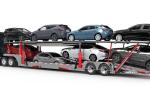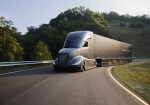At Goodwood, Michelin Will Show Out A Hydrogen Endurance Racer

by AutoExpert | 6 July, 2021
By 2050, the tire manufacturer has also promised to create all tires from 100 % sustainable materials.
Michelin will demonstrate a hydrogen-powered race car at this year's Goodwood Festival of Speed, with the goal of competing in the electric-hydrogen category at the 2024 Le Mans 24 Hours.

The racer, nicknamed LMPH2G, is driven by four electric motors and is powered by a four-stack hydrogen fuel cell. It has a combined power of 653bhp and a top speed of almost 185mph, according to Michelin.
A new race tire consisting of 46 percent sustainable materials will also be unveiled by the company. The tire has been crafted out of recycled carbon from used tires, orange and lemon peel, sunflower oil, pine resin, and packaging-recycled steel.
“By 2050, Michelin has committed to making all of its tires out of 100 % pure sustainable materials, and by 2030, % of all materials used in tires across the group will be sustainable,” the company stated.

In collaboration with hydrogen firm Green GT, the corporation also announced that it will utilize endurance racing as a laboratory to speed the development of sustainable, high-performance tires.
“The collaboration exemplifies Michelin's commitment to innovation, and it's the ideal vehicle to promote Michelin's 46% sustainable tires,” said Peyman Sabet, vice-president of business development at Michelin Europe North.
“Both groundbreaking developments uphold the company's commitment to sustainability while delivering exceptional results. We're pleased to be bringing [the LMPH2G car] to the Goodwood Festival of Speed, and we're even more delighted that fans will be able to see it tackle the hill,” Sabet added.
The car will participate in Goodwood's legendary Hillclimb and will be on show during the Festival of Speed on the French firm's paddock stage.
It was constructed in a joint venture with Faurecia, a French parts company that, along with Michelin, owns Symbio, a hydrogen fuel cell company. By 2030, the company wants to create 200,000 fuel cells per year.

















